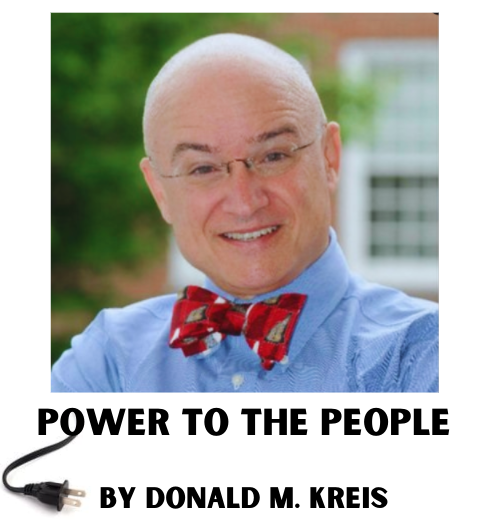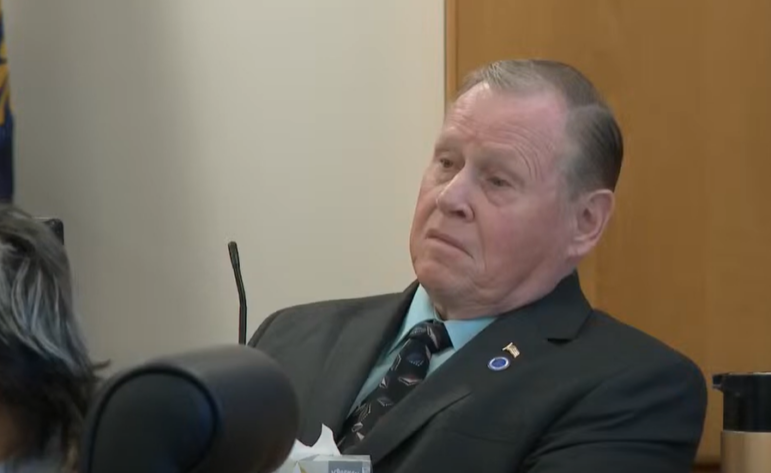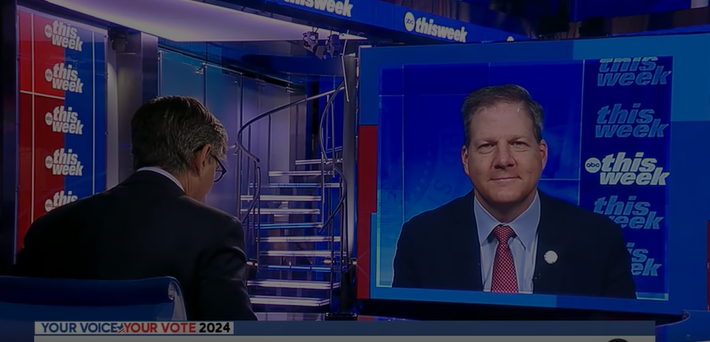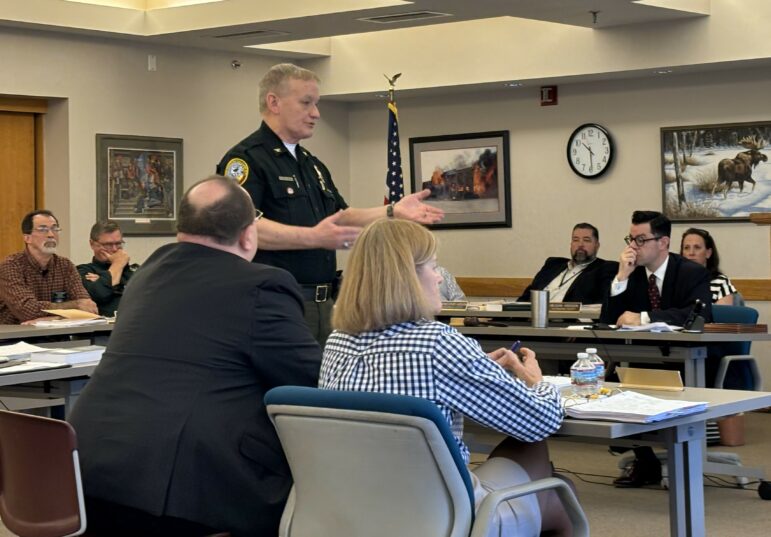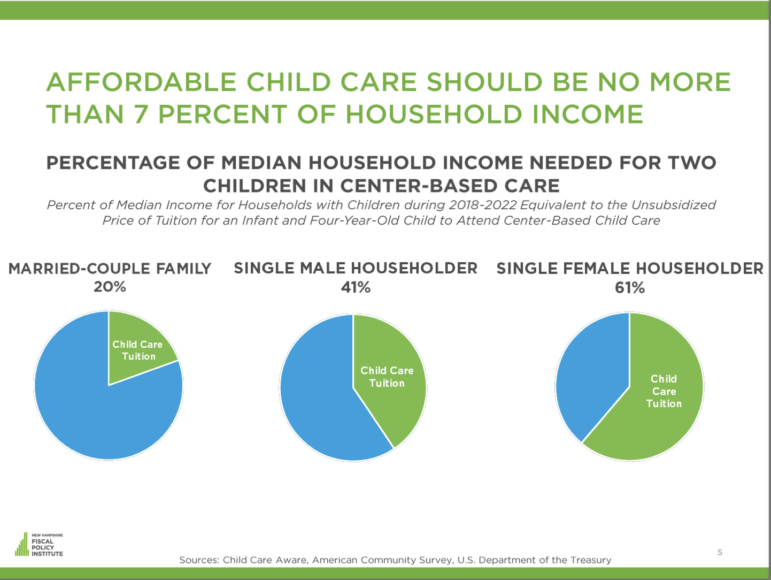By PAULA TRACY, InDepthNH.org
CONCORD – Senate Democrats passed a comprehensive paid family and medical leave insurance bill Thursday that would take half a percent from everyone’s payroll check – unless the employer pays it – to establish funds to cover if they become sick or need to care for a loved one at home.
The bill, which passed 14-10, already passed the House on a vote of 215-141 and is headed now to the governor’s desk where it is expected to be vetoed.
“Passing this bill today sends a signal you are not willing to work with us,” said Republican Sen. Jeb Bradley of Wolfeboro who said the governor won’t sign it because it creates a tax on payroll.
Last year, the then-Democrat-controlled Legislature agreed on a family leave program only to have Sununu veto it.
A competing measure which the governor had put forward, and was sponsored by Bradley, was a voluntary plan using private insurance which would start with state workers and allow others to opt-in later.
It failed along party lines with a vote to go to interim study. That means it is likely dead.
It is likely to be a key issue in the upcoming November election not only for the governor’s race but in the House and Senate races as well.
The bill passed by Democrats would include all workers in the state not already under some sort of plan at work and would pay for it with a payroll tax. The state would set up the leave program.
At public hearings on the two bills last week, Sununu called the Democrats’ proposal “a non-starter.”
State Sen. Dan Feltes, D-Concord, who is vying for the Democratic gubernatorial nod, said House Bill 712 establishes “a critical tool to help us move forward” in this state because it covers all workers.
“That’s key. That is a key provision…at a time when folks may be dealing with a cancer diagnosis, a situation that is developing right now with Coronavirus, and it is critical to our competitiveness as state and its workforce,” Feltes said.
He said it has been refined and has bipartisan support.
The arguments against it boil down to some notion that there is an income tax in this bill, he said.
He said that is not the case and no one believes it.
Sen. John Reagan, R-Deerfield, said there is no example of any state that has done this successfully.
“I prefer to wait for the example,” he said.
Sen. Martha Fuller Clark, D-Portsmouth, said this bill represents years of refinement and work and it is ready to go.
This bill is ripe as the Coronavirus presents itself in New Hampshire with sick people going to work because they have to, putting others at risk, she said, because they have no economic choice.
Sen. Frank Giuda, R-Warren, said there has never been an actuarial analysis done on this and it is not fiscally prudent policy.
“It’s a nice to have not a must-have,” he said.
Bradley offered an amendment and said this is the definition of a conundrum. “We have both sides of the political discourse in New Hampshire believing some version of leave is important and yet we cannot get to ‘yes.'”
When the governor testified he identified several stumbling blocks to get across the finish line. Bradley attempted to amend the bill or table it to add a voluntary provision to cover a serious condition by the employee that would be covered by the family leave plan.
This is a House bill, Bradley noted, and there is no deadline on it until some time in May.
He suggested that they continue to work on this because the governor has made it very clear that in the base bill there is an income tax.
“I like to fight for the art of the possible,” said Bradley.
There may be issues in this bill that we need to negotiate.
With a global pandemic, he said, now is the time to work together.
Fuller Clark said this bill would be allowing people to have a direct benefit.
She said normally if you have an income tax it just goes to the state or the federal government and they decide how to spend that money.
Here, she said, we are making it possible for individuals to be able to purchase insurance, based on their earnings.
“It seems to me there is a clear benefit,” she said and calling it an income tax has been used as a term to kill it.
Fuller Clark called it “smart, humane, practical and a product that we are providing to all of the workers of New Hampshire. This is not an income tax.”
Family leave was among more than 60 bills taken up this week in two days of Senate sessions on a variety of subjects.
Holocaust
By a unanimous 24-0 vote Thursday, the Senate voted to make the lessons of the Holocaust part of an adequate public education in the state. If approved by the House and the governor, New Hampshire would join 14 other states with such a designation.
State Sen. Jay Kahn, D-Keene, prime sponsor, said 75 years after millions were killed at camps like Auschwitz by the Nazis, two-thirds of millennials don’t know what Auschwitz is and 25 percent never heard of the Holocaust.
“When the survivors are gone, how will we impart to students historic facts about the Holocaust?” he said. “Senate Bill 727 addresses this, in making sure that education on the genocide is maintained in New Hampshire.”
The lessons of the Holocaust have not been learned around the world, Kahn said, and evil acts of genocide continue. Even in New Hampshire, words of discrimination on school grounds still resonate because of ignorance.
The goal of this, he said, is imparting knowledge to students to allow them to make informed choices.
Sen. Regina Birdsell, R-Hampstead, said her father never spoke of the horrors he saw in Dachau, and he refused to go back to that camp when the family lived in Germany.
She indicated that she wished she knew more about his life experience.
“I fully support the ought to pass,” she said.
Unfortunately, “discrimination has been part and parcel of the American experience,” said state Sen. Lou D’Allesandro, D-Manchester, an educator by profession. “Many were treated very poorly.”
“Let’s remember the lesson and bring it forward,” he said. “Justice, equality and good things…Let’s learn from the past.”
In the gallery and recognized for the vote were victims and descendants of the Nazi concentration camps and educators.
The bill reads that the general court “finds that discrimination is incompatible with the fundamental principles of democracy and that discriminatory practices, when escalated, can lead to genocide.”
The bill seeks to make education concerning the Holocaust part of an “adequate education” to graduate and that it calls on the governor to declare each April is Genocide Awareness Month.
The bill now goes to the House of Representatives for consideration.
Online Voting
A bill that would authorize online voter registration passed 14-10 along party lines.
Sen. Sharon Carson, R-Londonderry, asked how is proof of residency going to be accomplished online as it is required at a town or city hall?
“You are voting for something and you have no idea of how it is going to work,” she said.
Sen. Melanie Levesque, D-Brookline, said the state has a long and proud tradition of engagement with the democratic process.
“By enacting online voter registration, we create a clearer path towards participation for every eligible voter to continue to support our dedication to political engagement,” she said.
Republicans voted to oppose the bill. Senate Bill 631 now goes to the House.
Animal Killing Contests
The Senate passed a bill to prohibit animal killing contests involving wildlife.
Sen. David Watters, D-Durham, said there have been three such contests in the past. The contests have also left wounded animals which is considered under this bill “wanton waste.”
Fish and Game Department officials have said that there is no need for the bill.
However, the bill will now go to the House for consideration.
Solid Waste
Senate Bill 591 would set a goal of reducing the level of 2018 solid waste in the state by 25 percent by 2030 and by 45 percent by 2050. It passed on a voice vote.
On Wednesday, the Senate voted on a number of bills related to reproductive rights, biomass, and insurance coverage for blood testing for those who may have been exposed.
It voted 24-0 in favor of SB 623-FN which requires insurance coverage for perfluoroalkyls (PFAS) and perfluorinated compound (PFC) blood testing.
It also passed a package of bills related to prescription drug costs. Collectively, the bills seek to create transparency in prescription drug pricing and maintain affordable health-care for New Hampshire residents.
They include:
· SB 686 – relative to rebates paid to pharmacy benefits managers.
· SB 687 – relative to transparency in prescription drug pricing and establishing a New Hampshire prescription drug affordability board.
· SB 688 – prohibiting price gouging in the sale of prescription drugs.
· SB 689 – relative to the pharmacy anti-steering law.
Biomass Workers
The Senate voted in favor of SB 603, also known as the Biomass and Forest Products Workers Assistance Act of 2020, which would help retrain those laid off at biomass plants in Springfield and Whitefield.
Birdsell was among a number of senators disturbed by the defeat of an amendment to guarantee medical care to babies in Senate Bill 486-FN.
The bill, relative to insurance plans that cover maternity benefits, had an amendment offered to establish the born-alive infant act, which was previously laid on the table.
“I am deeply disturbed that my amendment to protect the life of a living, breathing baby was rejected, again, by the New Hampshire Senate,” Birdsell said. “The amendment would have guaranteed reasonable and appropriate care to a child who was born regardless of the circumstances of their birth.”
But the 14-10 vote to pass SB 486, the Reproductive Health Parity Act, is considered critical legislation that will require private insurance and plans on the Health Insurance Marketplace to cover abortion care if the plans also cover prenatal care, according to Planned Parenthood of New Hampshire.
Sabrina Dunlap, vice president of public affairs for Planned Parenthood of Northern New England, said, “Access to timely, affordable, and respectful abortion care is an essential component of reproductive health care and should be covered just like any other medical procedure. The Reproductive Health Parity Act will ensure equity in reproductive health care access for Granite Staters. We look forward to educating members of the House on the importance of this legislation and passing it into law.”
Medicaid Dental Care
Adults under Medicaid could get help for oral health under Senate Bill 754-FN, which passed unanimously.
Bradley said that offering a dental benefit to those who don’t have it will lead to healthier outcomes for those individuals and could ultimately help drive down health care costs and help get people back into the workforce.
The bill will head to next to the Senate Finance Committee. There is $250,000 in the budget to cover the program and it could begin next spring.

